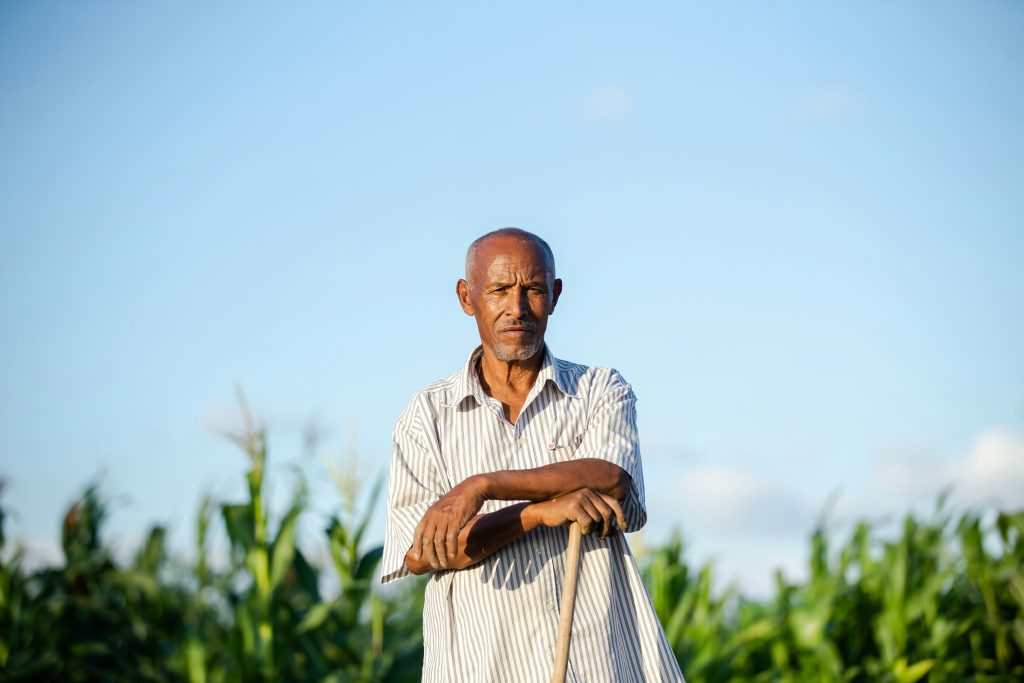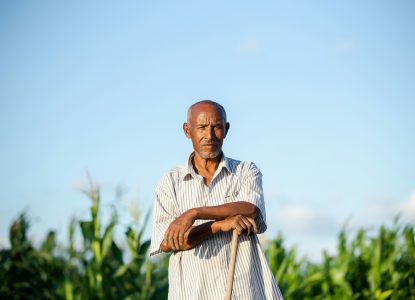By Marianna Richardson, Director of Communications for the G20 Interfaith Forum
– – –
This blog is part 1 of a 5-part series, exploring IF20’s five Priority Areas looking forward to the G20 Interfaith Forum in Cape Town, August 2025.
In an era marked by technological advancement and agricultural innovation, the grim reality of global hunger remains one of the most persistent and urgent challenges facing humanity. Food inequity—the unjust distribution of food resources—is not confined to any one country or continent. It is a worldwide crisis intricately tied to poverty, conflict, climate change, and systemic inequality.
The Problem
Globally, over 735 million people faced hunger in 2023, a sobering increase driven by economic instability, war, and environmental disruptions.¹ In many low-income nations, access to sufficient food is inhibited not just by poverty, but by limited infrastructure, political instability, and foreign debt. Farmers may struggle to grow enough to feed their communities due to unpredictable weather, inadequate investment, or land exploitation.² At the same time, high-income countries often contribute to this imbalance by subsidizing domestic agriculture, dumping surplus, and engaging in trade policies that undercut local markets in vulnerable regions.³
Urbanization and globalization add layers to the problem. Cities in developing countries are growing fast and informal settlements outside the cities often lack proper sanitation, water access, or affordable food outlets. In rural areas, geographic isolation and poor road networks make transporting and accessing nutritious food difficult.⁴ Where food is physically available, it is frequently out of financial reach—especially for marginalized communities facing intersecting barriers such as gender discrimination, displacement, or lack of land rights.
Conflict remains one of the most devastating accelerators of hunger. In countries like Yemen, South Sudan, and Syria, war has decimated food systems. Farmland is abandoned, food aid is weaponized, and markets collapse, leaving millions dependent on international relief efforts that often fall short.⁵ Meanwhile, climate change is reshaping the global food map—droughts, floods, and crop failures have become routine, particularly in regions least equipped to adapt.

Solutions
Solutions to global food inequity must be as varied and expansive as the problem itself. International aid organizations and NGOs play a critical role in emergency relief and capacity building, but long-term change demands structural reform. Land redistribution, fair trade, gender equity, and investment in sustainable agriculture are key components. Local empowerment—from community-led cooperatives to indigenous farming techniques—can bolster resilience and ensure food sovereignty.
Food justice is not merely about feeding the hungry—it’s about confronting the systems that create hunger in the first place. Bridging the divide between abundance and scarcity requires global solidarity and political resolve. It means redefining food not as a commodity, but as a human right.
G20 Interfaith Forum Priority
Food security, with its strong links to addressing poverty and inequality, is a priority issue for the G20 Interfaith Forum (IF20). Launched by the G20 in Brazil, the Global Food Alliance aims to internationally tackle this issue and both South Africa, and the African Union are committed to continue this work. The IF20 supports this multisector program, aiming to show convincingly that religious institutions are major players in the fight against hunger, as illustrated by the global faith-inspired efforts of the World Council of Churches, the Caritas organizations, PaRD (International Partnership for Religion and Sustainable Development), World Vision, Islamic Relief Worldwide, LDS Charities, and countless other faith-based institutions.
Discussions on food inequity will be a part of the G20 Interfaith Forum in August 2025. A plenary session will highlight actions against hunger and poverty outlining the shared and distinctive teachings of different religious traditions on hunger. These teachings motivate a wide variety of religiously backed non-profits dedicated to serving those in need. It will highlight the vital roles of religious leaders, communities, and actors within the Global Alliance as well as links between poverty, health, and agriculture. South Africa’s engagement of religious actors during G20 illuminates the links between teachings, ethical commitment, and practical action on the ground during this year’s summit.
A discussion-based breakout session will focus on the issue of fighting hunger as a critical element in addressing poverty. Global commitments to revitalize action to end hunger, both where famine looms and for broader threats to vulnerable communities (children especially), must include religious actors as integral, essential partners. This session will highlight national and faith commitments under the Global Alliance against Hunger, assessing the state of knowledge on how best to end hunger and link it to broader development and humanitarian strategies, with examples of best practice at national and community levels.
After the Forum on September 1, you can view these discussions on our YouTube channel at https://www.youtube.com/@g20interfaith89.
Also, IF20 will be producing two pamphlets addressing (1) the reasons why religious people feel a duty to help the poor and hungry with statements from various religious leaders, and (2) practical examples of NGOs and NPOs that are making a difference in the fight against food insecurity. These will also be available on our website (www.g20interfaith.org) by September 31, 2025.
– – –
Marianna Richardson is the Director of Communications for the G20 Interfaith Forum. She is also an adjunct professor at the Marriott School of Business at Brigham Young University.
—
Notes:
¹ FAO, “The State of Food Security and Nutrition in the World 2023,” July 2023.
² International Fund for Agricultural Development, “Rural Development Report 2021.”
³ Oxfam International, “False Promises: The Global Food System and the Climate Crisis,” November 2022.
⁴ World Bank, “Transport and Accessibility in Rural Areas,” 2023.
⁵ World Food Programme, “Global Hunger Overview,” February 2024.


